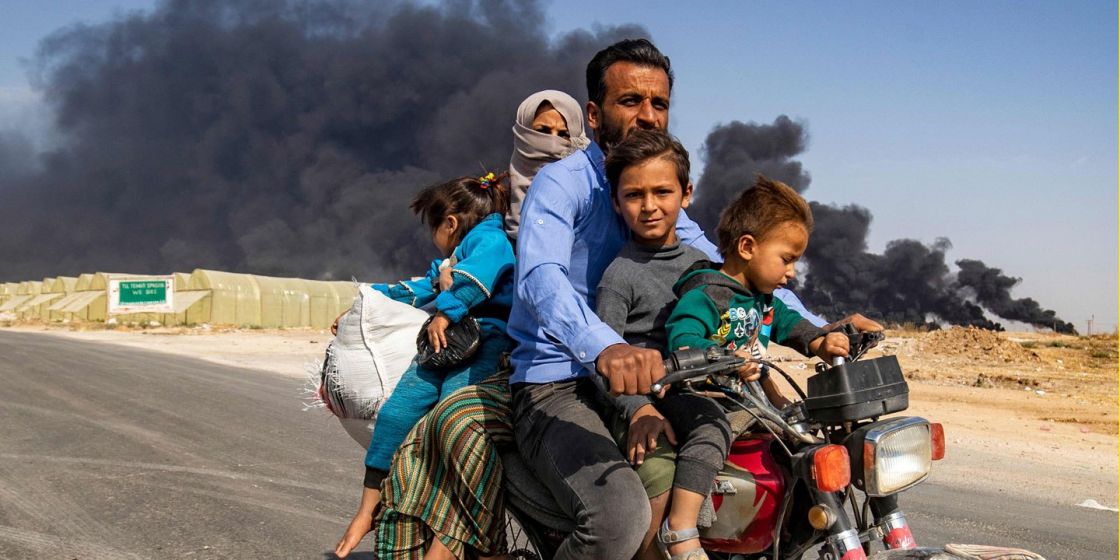- Editorials
- Posted
Kassioun Editorial 1104: Implementing 2254, Prospects and Difficulties
UNSC Resolution 2254 is, and has been since its adoption, the main and only way to get out of the Syrian crisis. The reasons for that can be summarized by the following main points:
- It is a UN resolution that obligates all sides to Syria’s unity and independence; therefore, it can be relied upon to achieve expelling all foreign forces and restoring the geopolitical unity of the country.
- It is a resolution that stems from Syrians’ right to self-determination based on dialogue among them, and thus lays the legal basis for undermining external interference, particularly the adverse ones.
- It is a resolution that outlines the only logical way out of the disaster, represented by a transitional period through a transitional body, then a constitution, and then elections; that is, it forms a closed circuit that is necessary to operate the process of getting out of the disaster, externally and internally, as the right point in time to effectuate radical and comprehensive change in Syria is an old one, the urgency of which was only further solidified and necessary by the outbreak of the crisis in 2011.
- Adoption of the decision, and the timing, was a turning point in the overall international dealings with the crises of the past three decades since the collapse of the Soviet Union; in a word, it was a preliminary expression of the new international balance of power according to which the Western and in particular American ability to determine the fate of the world and the fate of countries declines, without any effective objection at the local, regional, and international levels.
Although several years have passed since the resolution was adopted, this does not in any way mean that it has become obsolete or the need for its implementation has declined. Quite the contrary, as each additional day that passes without starting to implement it proves the necessity of that, not only in the interest of the Syrian people, but also in the interest of all the region’s peoples and all the countries harmed by the escalating Western sabotaging attrition process.
As is the case with the essence of the Minsk Agreement, which remained unimplemented for eight years after signing it, and was at the end implemented, in a practical manner and using other means appropriate for the specific situation of Ukraine and that of Eastern Europe in general. Likewise, Resolution 2254 will find its way to implementation through means specific to and appropriate for Syria and our region.
The last few months especially have made it clear that the horizons for implementing the resolution have noticeably become wider than before; and the features of that can be summed up in the following points:
- First: The deepening of understandings among the Astana tripartite, which has pushed for launching the Syrian-Turkish settlement that will undermine the American sanctions and blockade tool. It will also weaken Americans’ ability to exploit the northeastern, northwestern, and southern Syria dossiers, in parallel.
- Second: The expansion of Russian-Chinese rapprochement with major Arab countries and the opening of the door of regional settlements between Turkey and Iran on one side, and these Arab countries on the other, despite American refusal. All this means expanding the effective framework for Astana’s work.
- Third: The faltering of slogans of the extremist forces from the Syrian sides, and the exposure of these forces to Syrians and to the entire world, through their forced and repeated retreat from all the slogans they previously put forward; this means that they have become less able to prevent the movement forward towards the solution.
Nevertheless, and despite all the positive effects these indicators carry collectively and the realistic optimism it brings, there are other factors that play an opposite role, the main ones of which are:
- First: Tightening the sanctions and blockade, including through the “Captagon Act” and others, as well as with repeated “Israeli” assaults on Syrian territory.
- Second: Seeking perpetuation of the de facto division, through employing and encouraging all the tools simultaneously to reject a Syrian-Turkish rapprochement, work against it, and reject anything that could come out of it.
- Third: Attempting by the West, especially “Israel”, to use normalizing Arab countries as a Trojan horse for them in any ongoing process, now or in the future.
- Fourth: In addition to the sanctions and blockade, the internal major corruption and brutal liberalism, along with the criminal economy controlled by those who are dominating and the war lords, all of that increases the possibilities of new destructive uncontrollable explosions.
- Fifth: There is always the role of the extremists of the Syrian sides, who will continue until the last moment to do all they can to evade the change process and prevent achieving a comprehensive political solution.
The overall outcome of the positive and negative factors is in the interest of the positive and in the interest of implementing Resolution 2254, but weighting them decisively in the interest of implementing 2254 still requires the highest degree of organized patriotic work for the real stakeholders in the solution, i.e., for the plundered Syrians who make up more than 90% of the population. Day after day, there is a rise in the indications and signs of the possibility of these Syrians going back to engaging in a new phase of the popular movement, which includes all Syrian territory, regardless of the nature of those in control and the areas they are controlling.
The upcoming popular movement, and with it the international and regional conditions, will together form the objective basis for the actual implementation of Resolution 2254, and through it Syria’s revival and rebirth.


